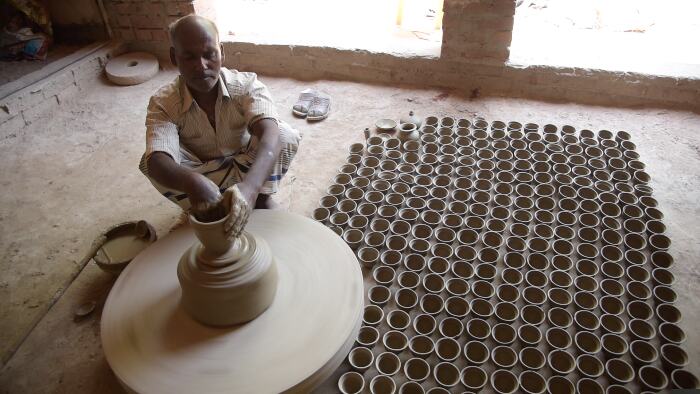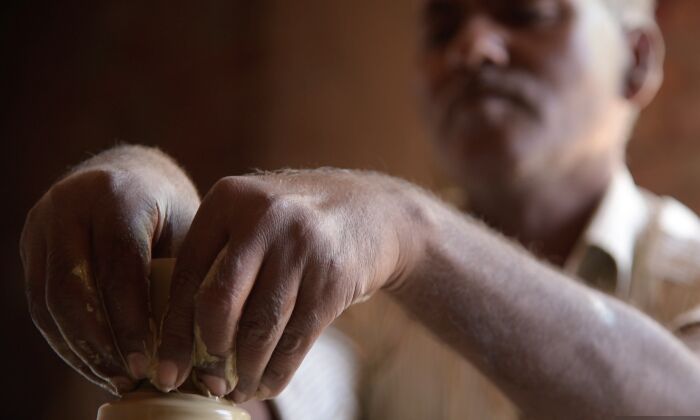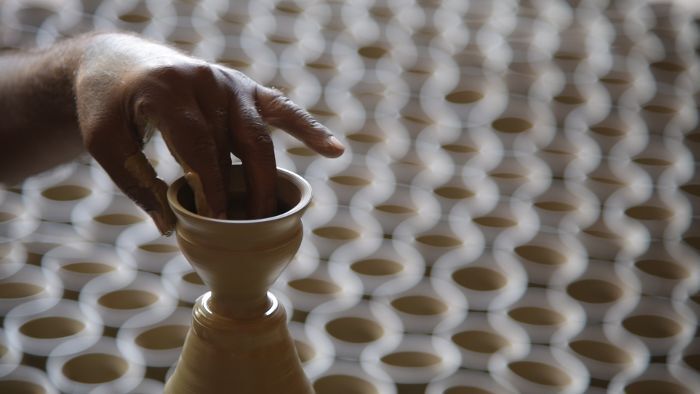Edited by: Swati Subhedar
We just survived a brutal summer. Though most of us have refrigerators at home, but isn’t it immensely satisfying to drink water from a surahi (an earthen pot)? Don’t you still get nostalgic while reminiscing the good old days when humble gullaks (piggy banks) used to be your only source of income? And then, the sheer joy of sipping chai in a kulhar (mud cups)!
Despite this craze, the demand for pottery has been on a decline. The demand is now limited to festivals and rituals, which has resulted in potters struggling to meet ends.
To understand how do they manage to stay afloat, we visited villages in and around Lucknow and found that in most of the villages, wheels have stopped rotating. At some places, the pottery wheels were found dumped in the backyards, while in some houses,wheels were rusting in storerooms.

We met Ramzan Khan, 58, who lives in Bana village near Lucknow. His father was a potter. Though he had the choice to take up any other profession, but he chose this as he wanted to keep the family tradition alive. Ramzan lives with this wife, children and grandchildren.
“Every member of the family, who is above ten, contributes his/her bit in this work; be it bringing soil from the nearby pond, mixing and cleaning it, preparing the dough, moulding the clay, baking it in our cow-dung furnace and finally giving our products a finishing touch. It is a teamwork. This is our daily routine,” said Ramzan, while moulding clay into a surahi.
He got excited like a kid in a candy shop while showing us his products – diyas, surahis, kulhars, kalash and gullaks. “I mostly take bulk orders and sell in wholesale markets. This way I don’t have to hire labourers and pay them. But sometimes, I have to go to the market and sell directly to customers. Things are becoming bit difficult due to decreased demand.”

Akrariya Kala, another village close to Lucknow, has been a home to potters. A potter who goes by the name of Junglee, who now works in the city, left pottery about a decade back. “One has to put in lot of effort and then we don’t get much on return. Things were different when my father used to work as a potter. We would get ample of orders. But now, fibre-made products have flooded the market as they are cheaper.”
Modernization is also to be blamed. “In villages, people still prefer to buy clay pots to store water or yogurt, so they still get some seasonal business. But in cities, people prefer storing water in refrigerators and the demand for clay pots has fallen drastically. Some potters work as wholesalers and get earn decently, but most of them are poor because of fallen demand.”





















